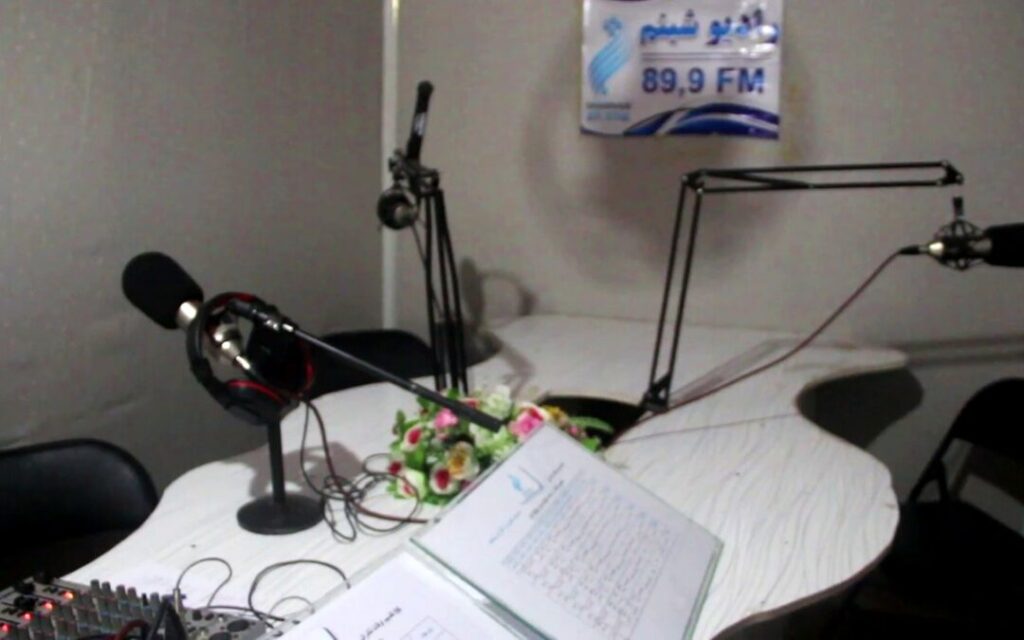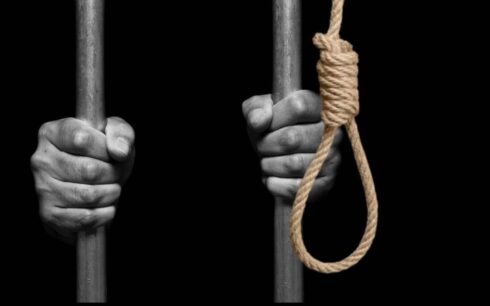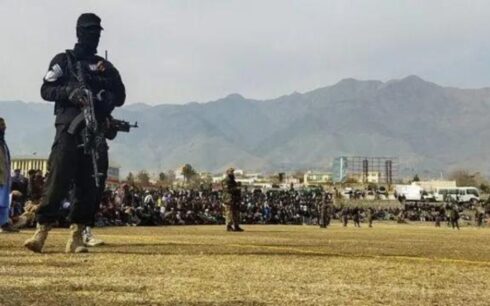The Afghanistan Journalists Center (AFJC) says in an annual report that in 2023, 168 incidents of journalists’ rights violations occurred in Afghanistan, including the arrest of 61 journalists by the Taliban.
The center highlighted that these incidents predominantly involved killings, injuries, and threats against journalists by the Taliban.
The report outlined severe restrictions imposed on the media and journalists by the Taliban, including widespread rights violations. At least 14 media directives, some issued in 2023, formed the basis of these restrictions.
These guidelines covered various aspects, including prohibiting women from working in national radio and television, restricting news coverage of demonstrations and civil protests, and imposing guidelines on news preparation and content, the report says.
Other directives included the requirement to refer to the Taliban as the government of Afghanistan, banning music publications, mandating female journalists to cover their faces, prohibiting women from appearing in dramas and media entertainment programs, separating men and women in the media, and banning interviews between women and men journalists, according to the report.
The report also mentioned bans on media interviewing Taliban critics, broadcasting international programs, publishing politically sensitive advertisements without authority approval, criticizing Taliban officials, and cooperating with “banned media.”
According to the report, the full implementation of these broad and sometimes vague guidelines has significantly impacted media program production and content.
Taliban officials rarely give interviews, and official spokespersons are not readily available to reporters, often refusing to answer in-depth questions, the report says.
While the media guidelines do not specify consequences for non-compliance, the AFJC found that journalists who did not follow these directives faced threats, imprisonment, or media outlets faced temporary or permanent shutdowns.
The report detailed 168 incidents in 2023, including the death of one journalist, injuries to 19 others, 87 threats, and 61 arrests. This represents a decrease from the 260 incidents recorded in 2022, but no qualitative or structural changes were noted, it added.
The intensification of pressures has led to reduced media freedom and independence, increased self-censorship, and shifted media focus to humanitarian and educational events.
In 2023, eight media bans were recorded, with three media outlets still prohibited from operating, the report stated, adding that additionally, four trial sessions for media managers and journalists were conducted, with various outcomes including prison sentences.
The report holds the Taliban’s intelligence department and Ministry of Vice and Virtue responsible for repressing media and freedom of expression. Despite efforts by the Ministry of Information and Culture of the Taliban to address complaints through a special commission, it has had limited success due to the influence of intelligence representatives, the report says.
The center urges the Taliban to rescind the extra-legal media guidelines and enforce media law and the law on access to information to foster a free media environment.





